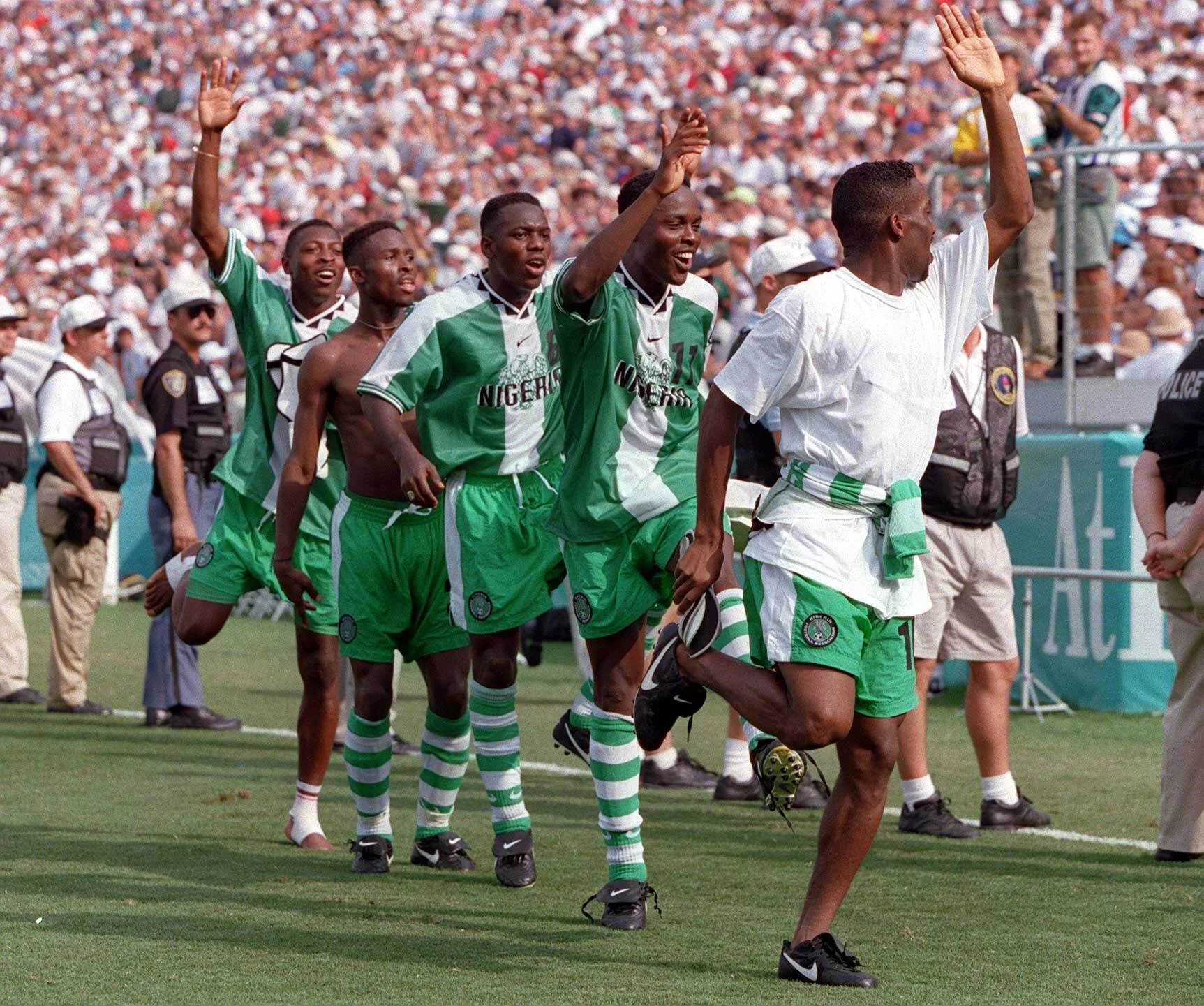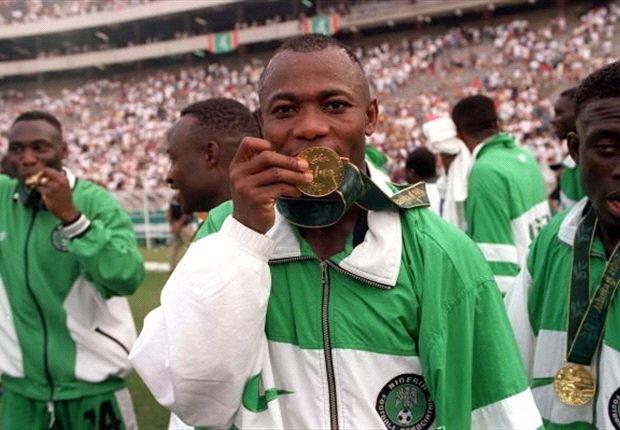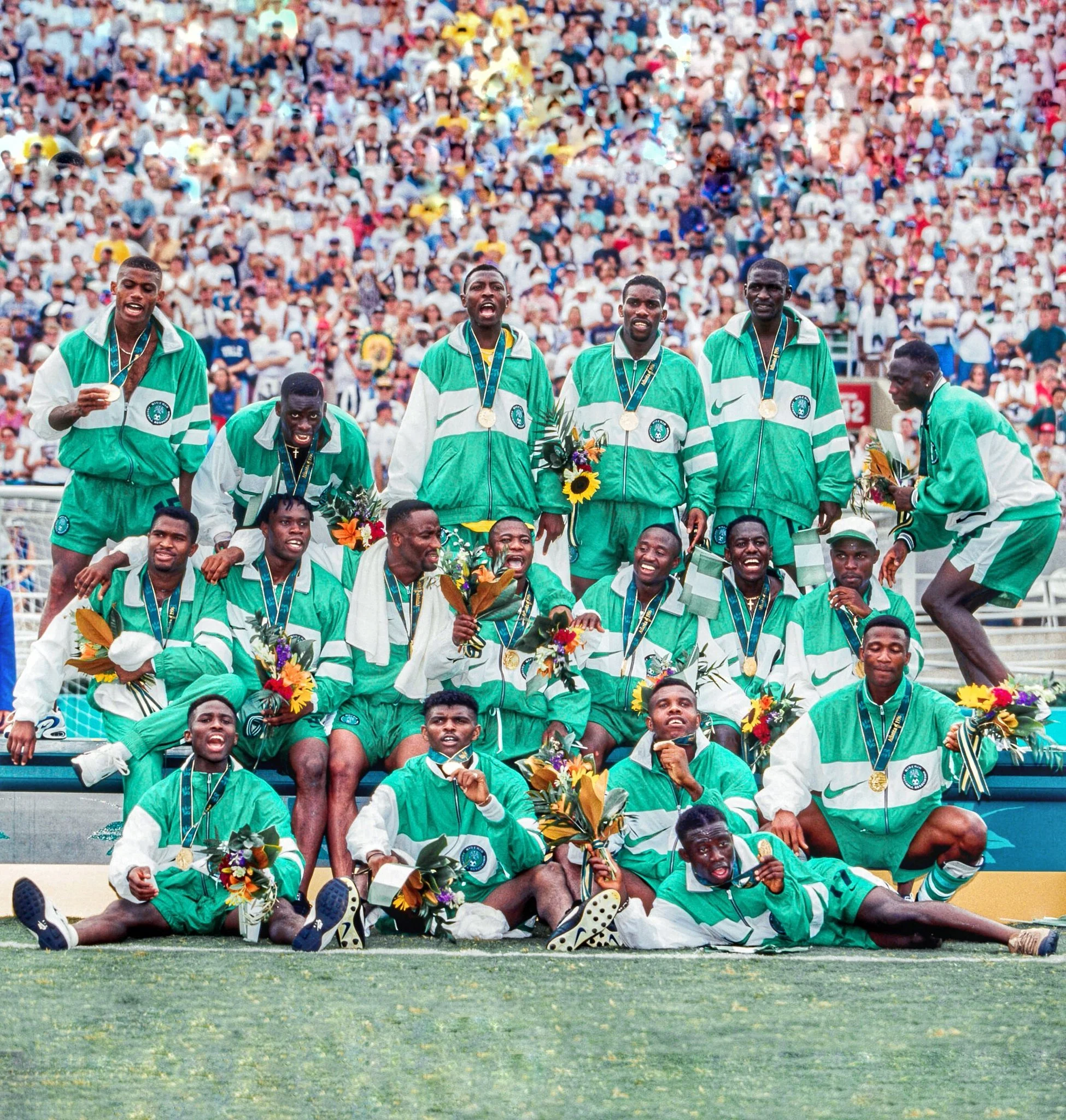Green Eagles Olympic Triumph
In the year 1996, the Nigerian national football team embarked on a remarkable journey to the Olympics, carrying the hopes and dreams of their nation on their shoulders. This was no ordinary team; it was a group of talented players who would defy expectations and dominate the tournament with their unwavering spirit, unconventional living conditions, and a touch of humor.
The Nigerian team arrived at the Olympic Village, filled with anticipation, only to discover that their assigned accommodations were far from glamorous. They found themselves in a dilapidated dormitory, where creaky beds and leaky faucets were the norm. Instead of complaining, they embraced the situation with laughter, recognizing that their camaraderie would be their strongest asset.
One evening, as they settled into their new abode, they discovered an old, dusty karaoke machine tucked away in a corner. Seeing this as a sign, they gathered around it, belting out popular songs with gusto, regardless of their questionable singing abilities.
Their impromptu karaoke sessions became a regular source of amusement. The players took turns singing their hearts out, trying to imitate famous musicians and comedians. Their laughter filled the room as they attempted to hit high notes and added their own comedic twists to the songs.
As the tournament began, the team showcased their skill and determination on the field. Their unique playing style, marked by quick passes, dynamic movements, and exceptional teamwork, caught the attention of spectators and opponents alike. Off the field, however, they continued to find humor amidst their living conditions.
With their spirits high and their bond strengthened the Green Eagles continued their quest for Olympic glory. They advanced through the tournament, overcoming strong opponents with their dazzling skill and resilience. Each victory fueled their determination, and they knew they were on the cusp of something extraordinary.
In the semifinals, they faced a formidable opponent, a team renowned for their defensive prowess. Brazil. The match was intense, with both sides battling fiercely. As the clock ticked away and tensions rose, a moment of levity broke through the tension. During a critical corner kick, the ball ricocheted off the head of the opposing team's defender and bounced into an empty net. The entire stadium erupted into laughter, including the Nigerian players. The unexpected goal, coupled with the hilarity of the moment, injected a renewed sense of energy and confidence into the Nigerian team.
Reaching the final was a testament to the Nigerian team's skill and determination, but they knew that the biggest challenge lay ahead.
Their opponents, Argentina, in the final match, were considered the favorites, having dominated throughout the tournament. The Nigerian players, undeterred, relied on their unbreakable spirit and unique playing style to mount a formidable challenge.
As the final whistle blew, the Green Eagles had triumphed, defying all expectations and securing the gold medal. The stadium reverberated with cheers and applause, and the players collapsed onto the field in a mix of exhaustion and elation. Their journey, filled with laughter, camaraderie, and resilience, had culminated in a moment of glory that would forever be etched in the hearts of their nation.
Back home in Nigeria, celebrations erupted throughout the country. The team's victory brought joy and unity to a nation that had faced its fair share of challenges. Their unorthodox living conditions and the humor they embraced became legendary, showcasing the power of resilience and camaraderie.
The story of Nigeria's dominance in the 1996 Football Olympics would be passed down through generations, a tale of triumph against adversity. It stood as a testament to the unyielding spirit of the Nigerian team and the transformative power of laughter and unity, reminding the world that with determination, humor, and unwavering belief, even the most extraordinary dreams can be realized.
Photos: FIFA




